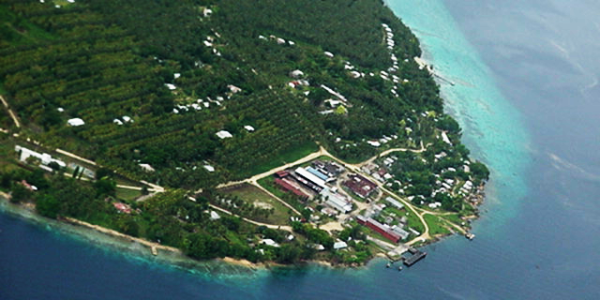SILI Malaghai Ulunganibeti Mamata Land Trust Board of the Ghaubata Tribe in Guadalcanal seeks clarification from the Government over the $140 million payout to RIPEL and Levers Solomon Limited estates ownership.
In a letter dated July 23, 2024, to the Office of the Prime Minister and Cabinet, Chief and President of the Board, James Gerelete, expressed agreement with the Government for National Unity and Transformation (GNUT) in paying the $140 million debt to regain ownership of the two estates.
However, he raised several concerns that require clarification from the GNUT Government.
- How did the debt occur, and who was responsible for it?
- As a layperson, I struggle to understand why the GNUT Government decided to secure the ownership rights under Cabinet rather than the Ministry of Lands, as established by law.
- You, Prime Minister Jeremiah Manele, provided a comprehensive history of the two entities, Levers Solomon Limited (LSL) and Russell Islands Plantation Estates Limited (RIPEL), during your wind-up Sine Die motion in Parliament. Congratulations on addressing the confusion so thoroughly.
Gerelete urged the government to revisit the 1964 Compulsory Acquisition Report to publicly identify the rightful legal owner as determined by the British Solomon Islands Protectorate (BSIP) Government at the time.
He highlighted that the LSL and RIPEL estates were surrendered by the Levers Pacific Plantations Limited (LPPL) Company prior to Solomon Islands’ independence on July 7, 1978.
After independence, the Solomon Islands Government made arrangements with Levers Solomon Limited to manage both estates, intending to provide jobs and grow the local economy.
However, this arrangement was undermined with the introduction of Fixed Term Estate (FTE) titles.
“Honiara was just a small town with a small population back then,” Gerelete noted.
“Unfortunately, corrupt practices derailed the arrangement between the National Government and LSL. They failed to meet their obligations to maintain the plantations, grow the economy, and provide employment opportunities.”
He pointed out that the Solomon Islands Government held the Perpetual Estate title, while LSL held the FTE title, leaving the issue of primary ownership unresolved.
“The two title holders should have worked in harmony, but instead, they pursued their own interests, leading to court battles that persist today,” he said.
Gerelete also expressed his frustration over the illegal land sales conducted by LSL directors and agents within the Kukum, Lunga, Tenaru, and Tenavatu estates, calling it an injustice to the primary legal owners of the alienated lands (Moore/Nanagho).
He referenced the FTE’s 1st Schedule, which stipulates: “The Grantee shall not subdivide, lease, or part with possession of, or allow any sub-lease of these estates or any portion of them, or transfer or charge the estate without the written consent of the grantor.”
Additionally, Gerelete cited a High Court ruling in Civil Case Number 114 of 2009, involving RIPEL and LSL as claimants against Nation Wide Limited, David Tuhanuku, and former workers of RIPEL.
He focused on paragraph 2(a) of the decision, which states: “The first claimant (RIPEL) through its Board of Directors is to appoint agents to supervise and manage its plantation property and assets on Russell Islands, without hindrance, interference, or disturbances from the defendants or their associates.”
He emphasized that the court’s order only applied to RIPEL, not to LSL, and criticized LSL directors and agents for illegally selling the primary owners’ rights on Guadalcanal.
“I urge the GNUT Government to address this issue head-on so that we can resolve the matter with respect and justice,” Gerelete said.
He also mentioned the 1964 Compulsory Acquisition, which covered alienated land from Lambi in West Guadalcanal to Rere in East Guadalcanal.
The only deed, the Deed of Woothia (Vutia), designated the Moore (Muri) area as the rear and Nanagho as the front, dating back to November 7, 1886.
Seventy-eight years later, in 1964, the BSIP Government identified the Malaghai Clan of the Guadalcanal tribe as the legitimate primary owner of the alienated land, although this determination was later manipulated.









